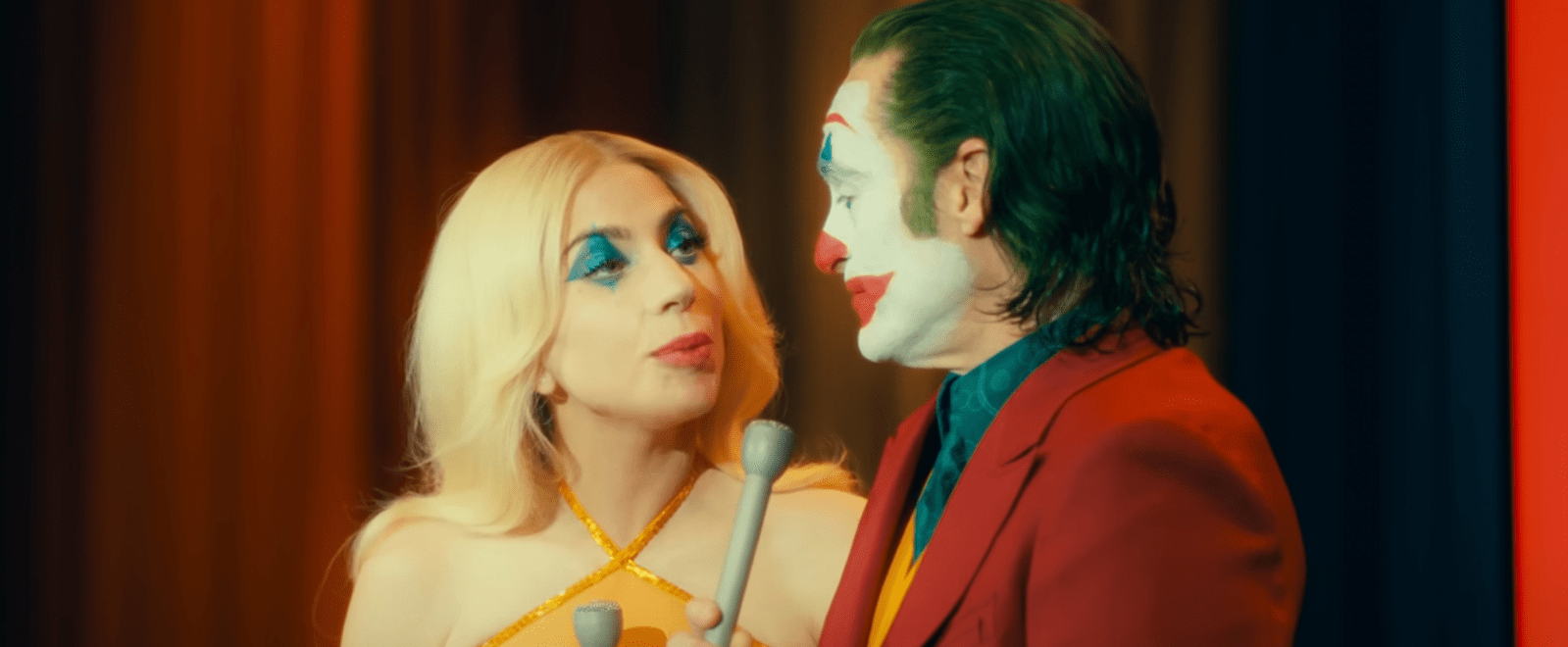
After the release of Joker in 2019, it became a popular internet trope to refer to things that substantially altered your life as your own personal “Joker” moment. Memes, tweets, viral videos… the Joker effect was real. Then Joaquin Phoenix won an Oscar, which seemed to validate the need for more Joker. But did we need more Joker? Well, now we have more Joker. What are we going to do with more Joker? Add music!
Joker: Folie à Deux is Todd Phillips’ follow-up to the 2019 drama, though it doesn’t seem like it will have the same type of magic that captured (and puzzled) audiences with the first installment. After debuting at Venice Film Festival, critics are conflicted on what to make of the sequel, even with the star power of Lady Gaga.
The film takes place two years after the fatal events of Joker. Arthur Flack is now a patient at Arkham State Hospital where he meets Lee, and the two embark on a musical love story rooted in a shared delusion. But from the sound of it, the delusion might be the movie itself. At least we got an Industry cameo.
The movie seems to be receiving the most criticism for not having much to say (or sing, for that matter) despite the lengthy 2 hour and 18 minute runtime, which might not give Gaga enough time to have her own A Star Is Born moment. At least she has a new record to look forward to after this!
Here’s what critics are saying:
Richard Lawson, Vanity Fair:
A swooning criminal romance Folie à Deux is not. So what is it? It is not insightful about mental illness nor criminal tendency. It barely articulates what it is to fall into obsessive love. The politics of the film are too lazy and inexact to even qualify as libertarian. Mostly, Folie à Deux plays as a middle finger to anyone who sought something meaningful in it. I won’t spoil anything specific, but I will say that the ending of the film—which is the first time anything truly happens in the whole movie—is bound to enrage even the most die-hard of Joker believers.
David Ehrlich, IndieWire:
“Folie à Deux” does not give the people what they want. On the contrary, it actively courts the disappointment of its own fandom in order to articulate how cruelly Arthur is co-opted by the fantasies of the collective unconscious — lost in a dream that his followers want to have for themselves. That’s all well and good for a meta-sequel that isn’t afraid to alienate its target audience, the problem is that Phillips doesn’t give the people anything else instead. His film is bold enough to deny expectations (and smug enough to savor the growing dissatisfaction that it creates in return), but not remotely thoughtful enough to offer something more interesting in their place.
Kyle Anderson, Nerdist:
Neither Joker film is uplifting, but the people who got a perverse power fantasy out of the first one will likely feel disappointed by the sequel. There’s actually a weird element of Passion of the Christ to Joker: Folie à Deux. But with way more smoking. I’m not even entirely convinced the twisted love story aspect works the way they wanted it to.
Owen Gleiberman, Variety:
“Joker: Folie à Deux” may be ambitious and superficially outrageous, but in a basic way it’s an overly cautious sequel. Phillips has made a movie in which Arthur really is just poor Arthur; he does nothing wrong and isn’t going to threaten anyone’s moral sensibilities. In fact, he actually blows the only good thing that ever happened to him — winning the love of Lee’s Harley Quinn — because he denies the Joker in himself. He’s now just a singing-and-dancing puppet clown living in his imagination. Is that entertainment? Audiences, I suspect, will still turn out in droves to see “Folie à Deux.” But when it comes to bold mainstream filmmaking, it’s the scolds who are having the last laugh.
Alison Willmore, Vulture:
Joker: Folie à Deux is Arthur’s movie, and Arthur just isn’t that interesting, despite how much effort Phoenix puts into rendering the character in exquisitely anguished mental and sunken-chested physical detail. In the film, Arthur is a void onto which others project what they want to see.
Phillips can’t seem to pinpoint what Arthur is either. He positions him as deeply unwell at certain times, and entirely aware of and responsible for his own actions in others, sometimes culpable, and sometimes a helpless victim. Mostly, Arthur is acted upon, even when he thinks he’s seizing control — a punching bag for the world and, more importantly, for the director, who subjects the character to so many indignities that he actually stops being pitiable and starts resembling the punchline to a very long, shaggy joke. By the end of Joker: Folie à Deux, that joke feels like it’s on us.
Martin Tsi, Collider:
Phillips had one job, which was to recreate the jittery cringe of the original Joker to capitalize on the commercial and awards successes. A middling courtroom tale and half-baked musical is not the kind of victory lap anyone wants. Your best bet is to go rewatch The People’s Joker and pretend this never happened.
Siddhant Adlakha, IGN:
The worst thing about Joker: Folie à Deux is its unfulfilled potential. It begins with the promise of a novel approach to the Joker and Harley Quinn, placing them in a world where the opposite of cruelty is musical romance. Unfortunately, the DC sequel gets bogged down by a lengthy courtroom saga, which not only keeps the dazzling Lady Gaga away from the spotlight, but centers the movie entirely around its own predecessor, without doing or saying anything new.
Joker: Folie à Deux opens in theaters on October 4.
